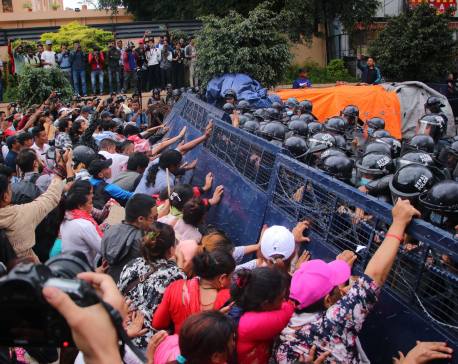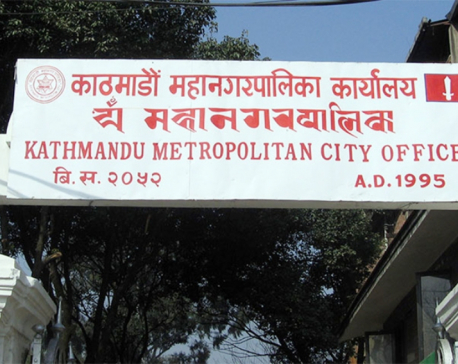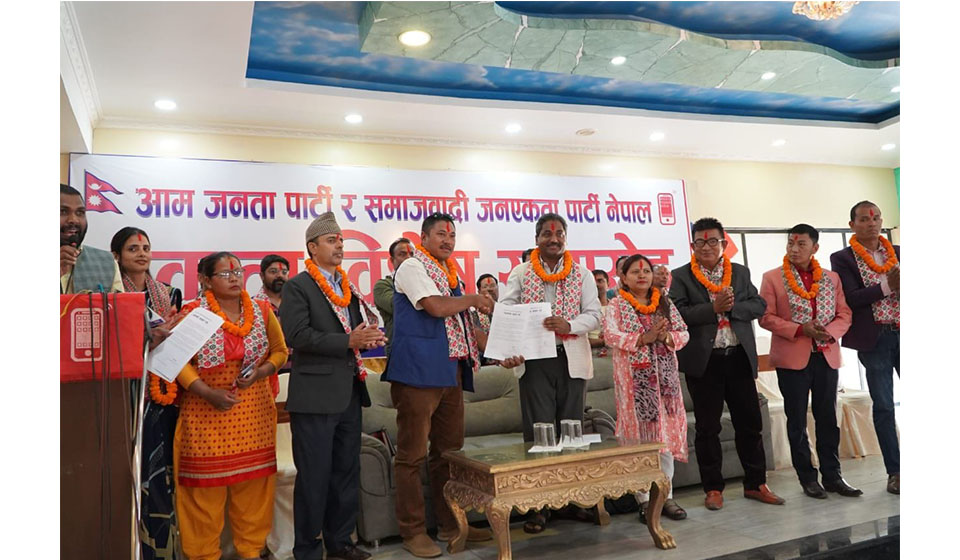
OR
Depositors lose billions of rupees due to lack of effective regulation of cooperatives
Published On: June 29, 2023 04:20 PM NPT By: Dilip Paudel

KATHMANDU, June 29: Depositors have lost billions of rupees due to the lack of effective regulation of cooperative institutions by the government. Due to the lack of effective regulation of cooperatives, deposits worth billions of rupees are at risk after several cooperative operators invested recklessly.
Cooperatives are in trouble when transactions are made violating financial discipline. Now-a-days, the depositors of cooperatives who have lost money are knocking on the doors of the cooperative department, with the request to get back their deposits. According to the Department of Cooperatives, problems have been observed in about 100 cooperatives. Although there is no definite data with the department, billions of rupees of depositors have sunk in those cooperatives.
Lately, depositors have not got back Rs 14 billion from Shiva Shikhar multi-purpose cooperative. After the deposited amount of money was not returned, the police arrested Kedar Nath Sharma, the former president of the cooperative and head of the board of directors, from India.
Similarly, Dev Kumar, director of Image Savings and Credit Cooperative, is absconding after defrauding Nepali depositors of about Rs 2.5 billion. Depositors defrauded by Oriental Cooperative Chairman Sudhir Basnet have not received their refund for years. Members of cooperatives have not received Rs 8.40 billion from Oriental Cooperative. The cooperative was declared problematic by the government on November 6, 2017. For over six years, the members of the cooperative have not got justice. Civil Savings and Credit Cooperatives whose director is former lawmaker and UML leader Ichchha Raj Tamang, has not returned Rs 7. 58 billion to the depositors.
These are just a few examples. The number has been growing everyday. Even after the problem was noticed in the cooperative sector, the problem is getting worse because the regulatory body is not strict. Although the government has declared 12 cooperatives as problematic, complaints have been received about problems in 100 cooperatives, said Tola Raj Upadhyaya, information officer for the Department of Cooperatives.
Upadhyaya said that there was a problem because the cooperatives were not operating according to the values and standards. Upadhyaya admits that there is no regulation by the regulatory body. “There are 125 cooperative organizations under the federal level,” said Upadhyaya, “Other cooperatives are subordinated to the provincial and local governments.” The regulation of cooperatives is not a priority for those bodies of the government. “Cooperatives should be run according to democratic rules,” he said.
Although cooperatives have to send reports to the regulatory bodies, the department also does not have a record of the financial situations of the cooperatives. “When the three-level government is supposed to regulate the cooperatives, the information system is not fully organized,” said Upadhyaya, “Currently, cooperatives are therefore disorganized."
Standard Savings and Credit Cooperative, Pacific Savings and Investment Cooperative, Prabhu Savings and Credit Cooperative, Kohinoor Hill Savings and Credit Cooperative, Consumer Savings and Credit Cooperative, Kuber Savings and Credit Cooperative, Chartered Savings and Cooperative, Vegas Savings and Loan Cooperative and Standard Multipurpose Cooperative have been listed by the government as problematic cooperatives.
Even though these cooperatives were declared problematic in 2019, the depositors of these cooperatives have not got their money back yet. Since then, more than 100 cooperatives have had problems, but the depositors are not expected to get their money back. This shows that due to the lack of effective regulation of these financial institutions, deposits worth billions of rupees are at risk.
Gopinath Mainali, a former secretary of the Ministry of Land Management, Cooperatives and Poverty Alleviation, said that problems are seen as cooperatives are not self-regulating and regulation by the government body concerned is weak.
He argued that the government should not remain silent. “Cooperatives do not operate according to theoretical values aligning with the ground reality,” said former secretary Mainali, “ Cooperatives are losing trust due to increasing cases of fraud by the management teams.”
He said that although many cooperatives have performed well, the entire cooperative sector is facing a crisis due to the financial embezzlement done by some cooperatives. Financial governance has been violated as the same person has been the chairman and manager in many cooperatives for a long time. The crisis came after the directors invested in real estate and other companies for personal benefits rather than the interests of the members. There are around 30,000 cooperative institutions across the country. These cooperatives are supposed to make an annual turnover of around Rs 900 billion. “If we do not increase trust in cooperatives, there may be a financial crisis,” says former secretary Mainali, “It is necessary to launch cooperative campaigns and the government to take special vigilance.”
After the Cooperative Act, 2074 and the Cooperative Regulations 2075, the rights to regulate, register, and cancel cooperatives were given to three levels of government.
After giving the responsibility of cooperative regulations to the Department of Co-operatives, provincial, local and federal government, it became more diluted. In the name of co-operative campaign, instead of managing and organizing the co-operatives, chaos has increased. In the name of cooperative campaigners, the problem has arisen due to the inability to keep the institutions in financial governance. The agencies, including the Department of Co-operatives, which have the responsibility of regulating cooperatives, have not been able to regulate them. Not only the regulation, but also the information with the balance sheets of the cooperatives are not in the government office. The regulatory body comes to know about the collapse of the cooperatives only after the depositors come to the government office. If the large cooperatives were regularly and effectively regulated, the financial condition of the cooperatives would be known on the basis of the balance sheets.
There are 30,879 cooperative institutions across the country. There are 7,337,252 members in these cooperatives. The cooperatives’ total share capital is Rs 94 billion and their savings stand at Rs 477 billion while they have lent Rs an estimated 426 billion. Many cooperative institutions are in trouble due to the fact that the directors of cooperatives give unsecured loans according to their decisions based on their personal interests and benefits, invest in individual companies, and invest in real estate transactions.
Although a working group formed in 2012 suggested the formation of a second level of regulatory body for effective cooperative regulation, it has not been implemented. Although there is a provision in the Cooperative Act, 2074 to regulate cooperatives with transactions above Rs 500 million through the Nepal Rastra Bank, the central bank has not regulated them, either.
You May Like This

Address Troubled Cooperatives Promptly and Resolutely
In the wake of mounting concerns and grievances from depositors entangled in the web of troubled cooperatives, the government's recent... Read More...

KMC registered over 1,000 complaints against 27 cooperatives last FY
KATHMANDU, September 15: The Kathmandu Metropolitan City (KMC) registered complaints against 27 cooperatives accused of embezzling their members’ deposits worth around... Read More...

NRB recommends second-tier institution for cooperatives regulation
KATHMANDU, July 24: Nepal Rastra Bank (NRB) has released all 14 cooperatives that had received the license to carry out limited... Read More...




Just In
- Sunkoshi-Marin Diversion Project’s tunnel construction nears completion, breakthrough scheduled for May 8
- Govt tightens security arrangement for Third Investment Summit 2024
- Pesticide residue found in vegetables in Nepalgunj
- Aam Janata Party and Samajwadi Jana Ekata Party merge
- 1,600 participants confirmed for Nepal Investment Summit
- Ilam-2 by-elections held peacefully, vote count likely to start tonight
- NEA schedules five-day power cut across Kathmandu Valley for underground cable installation
- Hundreds of passengers including foreign tourists in distress as poor visibility halts flights to and from PRIA







-1200x560-wm_20240427144118.jpg)





Leave A Comment